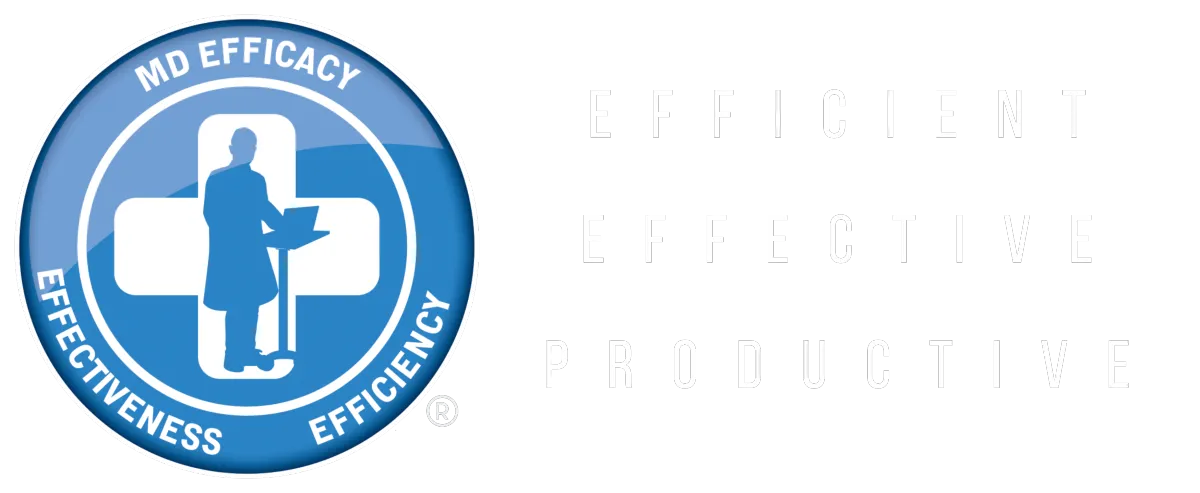In-Basket Management
Posted Dec 3, 2024
The inbox or in-basket. This is a big part for all of the outpatient physicians, and it can be a blessing, or it can be a nightmare. How we organize and how we deal with it is a big part of how we are gonna perceive this very important issue in our lives. First, before I go into technicalities, I would like to say that our point of view is very different as well. This can be a big source of revenue, and this can be surprising for some of us. But truly I consider it as a great source of revenue. But then I can see as well that it can get very overwhelming. Now, the more patients you see, the busier gonna be your in-basket or inbox so this can be a blessing. Right? We are productive, we work, and we are seeing patients. Now let me give you some very practical tips on how to deal with the inbox or in-basket. Number one: Organization and having a system. What is important that we need to attend to? And what we can push later? So having that flagging or marking as important so that we can deal with these stuff is very important to get things done on time. The second thing is having consistent experienced staff to triage your in-basket having everything coming to you can just be overwhelming because some stuff are not important and some stuff are so simple that an MA or a nurse with basic experience can take care of and also some stuff you should not see these patients need to come for a visit so who gonna triage that you need to have a good triage nurse to take care of this. Now how I think about it or how I approach it in my practice that I have three big categories: The first category is very simple stuff very simple questions that the nurse or MA can respond to right away or look at my last note and from it they get the answer and reply to the patient. These messages should not come to me the nurses will take care of it and we're good with that. The second extreme type of messages are patients who send long articles some patients like research and they look and they share their thoughts and it can be a long like one or two page messages. So, for these messages I ask the nurses clearly these messages should not come to me the patients should be contacted they're gonna reach out to the patients and say you know what do you want to see Dr. Morkos soon and discuss these concerns. If they yes, well and good. If not then you know what we're going to discuss during your upcoming visit and we're good with that and then the third type of messages going to be the shorter messages that the nurses cannot get the answers to from my note and then for these patients and or for these messages these are the messages that they're going to send to me so two big buckets of messages will not come to me and the third which is reasonable and can be dealt with in a timely manner I'm gonna get and I'm gonna respond to. Key thing there's a very important thing that we need to learn which gets to be a bit difficult but we need to learn it is boundaries boundaries with the nurses who are triaging my in-basket and boundaries with the patients so with the nurses it is a learning experience they work with me now I have my nurses who triage my in-basket and I need to teach them how I manage my in-basket which can be different from my colleagues in our practice and from their experience in the past as well so consistency is the key here because if I am the physician and one time I tell them about a long message you know what you need to tell the patient they need to come for for a visit for them and then the next time with a long message I tell them you know what it's okay I'm gonna get to it this time this is a confusing message this doesn't build consistency and doesn't build a teachable way of doing things on regular basis we should not do that we should be very consistent with our with our practice that's crucial and then the second important thing in the boundaries that okay they sent me a long message I tell them you know what ask the patient to come for a visit they send me another long message calmly and in kind of affirmative tone please send don't send these messages to me again the patient need to come for a visit for that or discuss during the following visit if in a week or two they sent it again I'm gonna have the same response again if they sent it to me 10 times I want to respond to them 10 times with the same exact answer initially I used to get many of them but at the time went by less and less and less now it's going to be the very infrequent and rare instance that I get a long message but I'm going to respond with the same question the second part of the boundaries which is very very very important is the boundaries with the patients we are in such a great career path being a physician is a blessing and what we do is great yet many of us get to be people pleasing we want to make the patients happy added to that that patient reviews and patient satisfaction scores and having everything out on their social media can get challenging we want to make them happy but then this should never come in the way of establishing our boundaries and these boundaries when I say you know what this is what I can do and this is what I cannot do so usually with the patients I'm very clear if a patient sent me a long message during the visit with the patient I want to kindly say you know what I want to make sure that you have the best experience and that I attend to everything you need I cannot chit chat over the inbasket I cannot keep going back and forth in messages and it is unlucky that I don't have the bandwidth to read and respond long messages if you have concerns like that please come for the visit so I'm establishing my boundary with the patients and this is how I can care for them now by the end of the day they are happy because they got all of their questions answered and their concerns taken care of and at the same time I'm also happy because I don't have to do tons of extra work before and after hours so this gets to be very important and I'm going to add to the boundaries that we should be very supportive of our nursing staff so if a patient sent a my short message to me with a long message they get to end they tell the patient come for a visit the patient to resist and say you know what I don't have the capacity to do that so the nurses talk she's gonna or he's gonna send the message to me and then in that instance I'm gonna support my nursing staff and I'm gonna tell the patient you know what I agree with my nurse who said that I don't have the bandwidth for this so they feel supported and when they feel supported and that you got their bag they're gonna fight for you as well so if you support them and fight for them they're gonna fight for you and this is how we establish a good practice and a reasonable practice and now you see why I can see it in basket as a blessing and as a source of revenue these patients who are gonna gonna need to be seen sooner can be added to my waitlist or fill available slots that are coming up in the next few days because patients cancel all the time and this is how I maintain my kind of my busy practice because otherwise my waitlist gonna be far shorter this is a very important issue that you want to think about another thing that comes to the mind is oh you know what like many of us practicing in the US we don't have availability for months to come and we cannot tend to these patients in the short term and I find this problem to be a significant shortage in our capacity to adjust our templates and I'm gonna talk about this specific issue in a comment video and thank you for watching and see you soon.
MD Efficacy © 2026, All Rights Reserved.
By visiting this page, you agree to Terms of Use, Privacy Policy, & Earnings Disclaimer.

